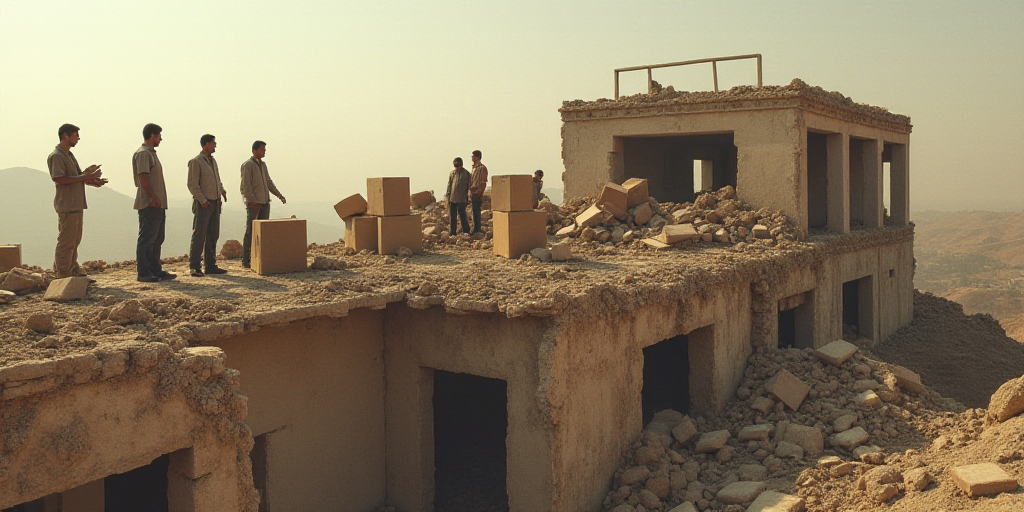Impact of U.S. President Donald Trump’s Decision on Global Humanitarian Sector
The United Nations (UN) announced on Monday that it will drastically reduce its aid programs this year due to “the worst financial cuts” faced by the humanitarian sector, largely a result of the U.S.’s decision to minimize its donations.
Reduced Budget and Increased Prioritization
The new aid plan has a budget of $29 billion, far from the $44 billion the UN requested for 2025. Consequently, it will have to “hyperprioritize” its plans to assist 114 million people worldwide, according to a statement from the UN Office for Coordination of Humanitarian Affairs (OCHA).
UN’s Fundraising Shortfall
By mid-year, the UN has only managed to raise $5.6 billion of the $44 billion it requested, which is only 13% of the total, insufficient to address humanitarian crises in Sudan, Gaza, the Democratic Republic of Congo, Myanmar, or Ukraine.
Consequences of U.S. Funding Reductions
For many years, the United States has been the leading donor for development aid. The cuts announced by the Trump administration will have significant consequences for emergency assistance, vaccination campaigns, and the distribution of medications to combat HIV, among other programs.
U.S. funds constituted a substantial portion of the budgets for some UN agencies and numerous NGOs, losses that cannot be made up in a few weeks or months.
Warnings from UN Leaders
The Director-General of the World Health Organization (WHO), Tedros Adhanom Ghebreyesus, denounced a decision that could cost millions of lives. Meanwhile, the UN World Food Programme (WFP) warned in March of a “crisis without precedent” due to the 40% reduction in its funding for 2025.
“But without funding and access, we cannot save lives,” states WFP Director Cindy McCain. On Monday, the WFP and the Food and Agriculture Organization (FAO) of the UN published a new list, citing Sudan, Gaza, South Sudan, Haiti, and Mali as areas at immediate risk of famine.
“Devastating Consequences”
The cuts affect humanitarian actions worldwide, such as the fight against tuberculosis in Bangladesh or aid programs for Colombia’s largest indigenous and migrant camp in the Guajira desert, where budget constraints have left only three of the 28 NGOs operating in 2024.
Besides the U.S., other countries have also reduced their donations in a complex economic context.
“We’ve been forced to triage human survival,” said Tom Fletcher, the UN Under-Secretary-General for Humanitarian Affairs and Emergency Relief Coordinator.
“The numbers are brutal, and the consequences are devastating. Too many people will not receive the help they need, but we will save as many lives as possible with the resources we have,” he added.
Prioritizing Humanitarian Needs
To make the most of a reduced budget, the UN will establish a scale to rank the severity of humanitarian needs. Areas classified as level 4 or 5, meaning extreme or catastrophic conditions, will have priority.
“Brutal budget cuts force us to make brutal choices,” admitted Fletcher. The UN Refugee Agency (UNHCR) announced on Monday a global reduction of its personnel budget by “around 30%” due to lack of funding, meaning the elimination of about 3,500 jobs and hundreds of temporary contracts.
U.S. contributions have represented 40% of the UNHCR’s budget in recent years, around $2 billion annually, according to UNHCR chief Filippo Grandi’s statement to the Security Council at the end of April.
Key Questions and Answers
- What is the main reason for the UN’s decision to cut aid programs? The primary cause is the significant reduction in funding from major donors, particularly the United States.
- How much has the UN managed to raise so far? By mid-year, the UN has only raised $5.6 billion of the $44 billion it requested for 2025.
- Which UN agencies and NGOs are most affected by the funding shortages? Many UN agencies, including the WFP and WHO, as well as numerous NGOs, face severe consequences due to the loss of U.S. funding.
- What are the consequences for humanitarian actions worldwide? The cuts affect various aid programs, including fighting diseases like tuberculosis and providing essential services to vulnerable populations.
- How are UN agencies prioritizing their aid programs with reduced budgets? The UN will rank humanitarian needs, prioritizing areas facing extreme or catastrophic conditions.






